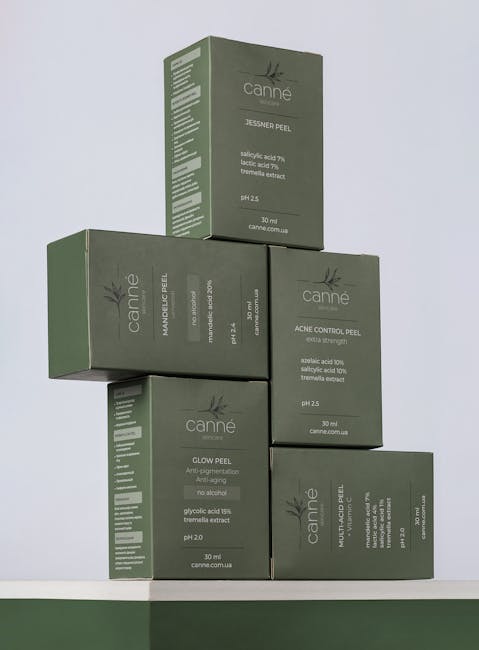How to Cure Acne: The Benefits of Exfoliation
Acne can be a persistent issue that affects not just our skin but also our confidence. While there are numerous treatments available, exfoliation stands out as a simple yet effective method to enhance your skincare routine. In this blog post, we’ll explore how exfoliation helps in managing acne and the best practices for incorporating it into your skincare regimen.
Table of Contents
1. Introduction to Acne and Its Causes
2. Understanding Exfoliation
3. Types of Exfoliation: Chemical vs. Physical
4. How Exfoliation Benefits Acne-Prone Skin
5. Best Practices for Exfoliating Acne-Prone Skin
6. Conclusion
7. FAQs
Introduction to Acne and Its Causes
Acne is a common skin condition that affects millions of people worldwide, ranging from teenagers to adults. It occurs when hair follicles become clogged with oil and dead skin cells, leading to whiteheads, blackheads, or pimples. Hormonal changes, stress, diet, and certain medications can exacerbate acne, making it a challenging condition to manage.
Understanding Exfoliation
Exfoliation is the process of removing dead skin cells from the surface of the skin. This can be achieved through mechanical means, such as scrubs, or chemical means, using acids or enzymes. By eliminating the outer layer of dead skin, exfoliation reveals a fresher, more radiant complexion. But the benefits go beyond just aesthetics—exfoliation can play a vital role in treating acne.
Types of Exfoliation: Chemical vs. Physical
Chemical Exfoliation
Chemical exfoliants use active ingredients to dissolve dead skin cells. Popular options include alpha hydroxy acids (AHAs) like glycolic acid and beta hydroxy acids (BHAs) such as salicylic acid. These acids penetrate the skin and help in unclogging pores, making them particularly beneficial for acne-prone skin.
Physical Exfoliation
Physical exfoliation involves using a product or tool to manually scrub away dead skin cells. This can include exfoliating scrubs, brushes, or sponges. While effective, physical exfoliation can sometimes be too harsh for sensitive or acne-prone skin, so it’s essential to choose gentle products.
How Exfoliation Benefits Acne-Prone Skin
Exfoliation offers several benefits for those struggling with acne:
1. Unclogs Pores: By removing dead skin cells, exfoliation prevents the build-up that can lead to clogged pores and acne.
2. Enhances Skincare Product Absorption: Clearer skin allows for better absorption of acne treatments, making them more effective.
3. Reduces Acne Scarring: Regular exfoliation can help fade acne scars over time by promoting cell turnover.
4. Evens Skin Tone: Exfoliation helps in reducing the appearance of dark spots and hyperpigmentation, often left behind by acne.
Best Practices for Exfoliating Acne-Prone Skin
To ensure exfoliation is beneficial rather than harmful to your skin, consider these best practices:
1. Choose the Right Exfoliant: For acne-prone skin, chemical exfoliants like salicylic acid are usually more effective and gentle. Avoid harsh physical scrubs.
2. Start Slowly: Begin by exfoliating once a week, gradually increasing to two to three times a week based on your skin’s tolerance.
3. Be Gentle: Use gentle motions and avoid applying too much pressure, especially when using physical exfoliants.
4. Moisturize After Exfoliation: Exfoliation can sometimes leave the skin dry, so always follow up with a good moisturizer to keep your skin hydrated.
5. Use Sunscreen: Exfoliated skin can be more sensitive to the sun, making sunscreen a crucial step in your routine.
Conclusion
Incorporating exfoliation into your skincare routine can be a game-changer for managing acne. By understanding the types of exfoliation and following best practices, you can achieve clearer, healthier skin. Remember, consistency is key, and it’s always wise to consult with a dermatologist if you’re uncertain about which exfoliation method is best for your skin type.
FAQs
Q1: Can exfoliation worsen acne?
A1: If done too frequently or with harsh products, exfoliation can irritate the skin and worsen acne. It’s essential to use suitable products and follow a gentle routine.
Q2: How often should I exfoliate if I have acne-prone skin?
A2: Start with once a week and gradually increase to two or three times a week, based on your skin’s response.
Q3: Is it okay to use physical exfoliants on acne-prone skin?
A3: While some people can tolerate gentle physical exfoliants, chemical exfoliants are generally recommended for acne-prone skin to avoid irritation.
Q4: What should I avoid when exfoliating acne-prone skin?
A4: Avoid using harsh scrubs, applying too much pressure, and over-exfoliating. Always follow up with a moisturizer and sunscreen.
Embrace the power of exfoliation and watch your skin transform! 🌟
